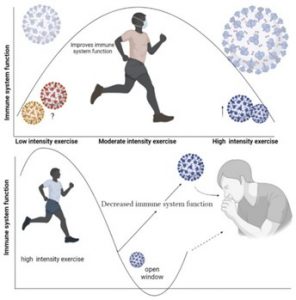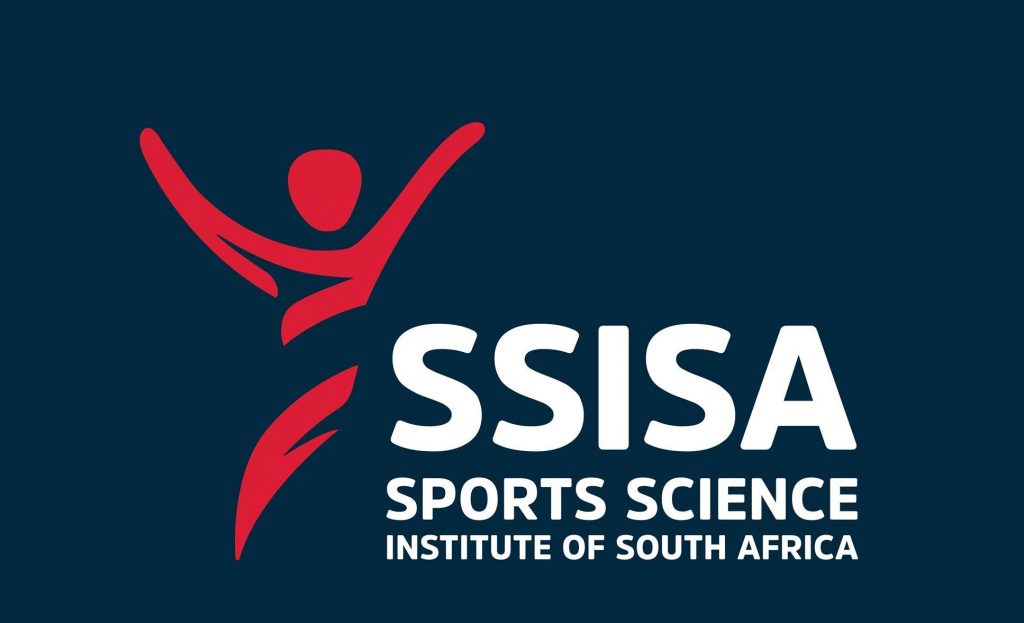The immune system plays a crucial role in maintaining overall health and well-being, especially for athletes, who engage in intense physical exercise (1).
As athletes they push their bodies to the limit during intense training, better understanding of how the immune system functions becomes essential for both athletes and coaches. In this article we’ll explore key insights from the SSISA Research Digest series on the immune system of athletes.
Research shows that moderate-intensity exercise can enhance the immune system by increasing the production and circulation of immune cells, making athletes more resistant to infections and diseases (2).
On one hand, regular moderate intensity exercise has been shown to improve immune function by increasing the production and circulation of immune cells, enhancing the body’s ability to fight off infections and diseases. On the other hand, excessive and prolonged high-intensity exercise can lead to immune suppression, making athletes more susceptible to infections and illnesses. Therefore, it is important for coaches and athletes to find a balance between training intensity and immune system health (3).
Figure 1: Open window theory after high-intensity training (4)

- Understanding the Immune System
The immune system is like an elite security force within our bodies. It consists of specialized cells, tissues, and organs that work together to protect us from infections, viruses, and other threats. Here’s how it operates:
- Surveillance: Immune cells constantly scan for intruders, identifying anything unusual.
- Identification: When a threat is detected, immune cells recognize it by its unique markers.
- Attack Mode: The immune system launches a targeted attack, neutralizing invaders.
- Memory: It remembers past encounters, ensuring faster responses in the future.
- Boosting Immune Health
For athletes, maintaining a robust immune system is the most important aspect to ensure that peak performance is possible. Here are some strategies:
- Optimize Sleep and Rest: Adequate rest allows the immune system to recharge and repair (5).
- Nutrition Matters: A balanced diet rich in vitamins, minerals, and antioxidants supports immune function (6).
- Training Load Adjustment: Overtraining can weaken the immune system. Finding the right balance is key (3).
- Manage Travel Challenges: Frequent travel can stress the immune system. Hydration and proper nutrition are vital (7).
- Prevention and Performance
Coaches play a significant role in supporting athletes’ immune health, as they are considered the “front-line” individuals when athletes are at practice. When sick, exercise can put you at risk of another infection or more serious conditions like myocarditis (8). It is important to avoid exercise while symptoms last (typically 2-3 days). When planning a return to training, it is recommended that this is done once symptoms have finished – start by introducing very mild exercise (e.g., walk or light jog, light resistance training). Assuming no further issues, you can progress to moderate intensities before slowly re-introducing high intensity activities. A general rule of thumb can be 7 days after symptoms finish.
Coaches are encouraged to remind their athletes regularly about doing their part in preventing infections to optimize performance, as this goes hand-in- hand. By prioritizing immune support, coaches can help athletes stay healthy and perform at their best during in-season tournaments and competitions.
The immune system is often considered as the body’s unsung hero, tirelessly defending our bodies. For athletes and coaches of all sport codes, understanding its intricacies and implementing immune-boosting strategies is essential.
For more evidence-based articles and information related to training, exercise and sports science, check out Research Digest by the Sports Science Institute of South Africa (SSISA)
by Warren Lucas
Research Consultant – Sports Science Institute of South Africa (SSISA)
References:
- Leal LG, Lopes MA, Batista ML. Physical exercise-induced myokines and muscle-adipose tissue crosstalk: A review of current knowledge and the implications for health and metabolic diseases. Vol. 9, Frontiers in Physiology. Frontiers Media S.A.; 2018.
- Gleeson M. Immune system adaptation in elite athletes. Curr Opin Clin Nutr Metab Care [Internet]. 2006;9:659–65. Available from: http://journals.lww.com/co-clinicalnutrition
- Cicchella A, Stefanelli C, Massaro M. Upper respiratory tract infections in sport and the immune system response. A review. Vol. 10, Biology. MDPI AG; 2021.
- Agha-Alinejad H, Hekmatikar AHA, Ruhee RT, Shamsi MM, Rahmati M, Khoramipour K, et al. A Guide to Different Intensities of Exercise, Vaccination, and Sports Nutrition in the Course of Preparing Elite Athletes for the Management of Upper Respiratory Infections during the COVID-19 Pandemic: A Narrative Review. Vol. 19, International Journal of Environmental Research and Public Health. MDPI; 2022.
- Walsh NP. Recommendations to maintain immune health in athletes. Vol. 18, European Journal of Sport Science. Taylor and Francis Ltd.; 2018. p. 820–31.
- Sale C, Elliott-Sale KJ. Nutrition and Athlete Bone Health. Vol. 49, Sports Medicine. Springer; 2019. p. 139–51.
- Pluim BM, Racinais S, Périard JD. Blood, sweat and tears: Training and competing in the heat. Vol. 49, British Journal of Sports Medicine. BMJ Publishing Group; 2015. p. 1161.
- Hurwitz B, Issa O. Management and Treatment of Myocarditis in Athletes. Vol. 22, Current Treatment Options in Cardiovascular Medicine. Springer; 2020.
